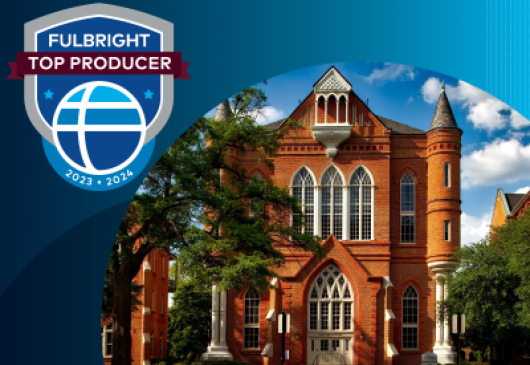Explore U.S. Scholar Awards
Explore opportunities for U.S. citizens to go abroad with the Fulbright U.S. Scholar Program. With more than 400 awards annually in over 135 countries to teach, conduct research, and carry out professional projects, find the right Fulbright opportunity for you.

2024 Fulbright Top Producing Institutions
The 2023-24 Fulbright Top Producers represent the diversity of U.S. higher education and highlight collaboration between colleges and universities in the U.S. and abroad.
42
Heads of State or Government
80
MacArthur Foundation Fellows
89
Pulitzer Prize Recipients
62
Nobel Prize Laureates


